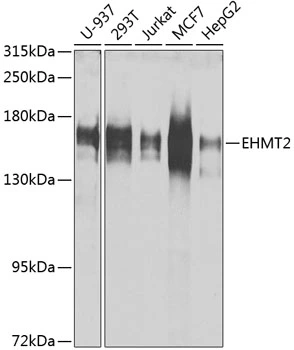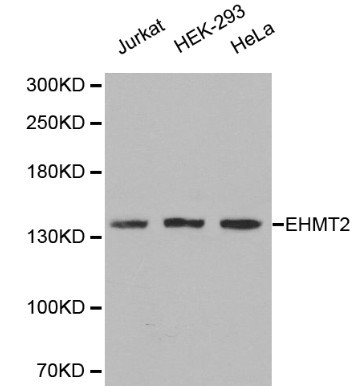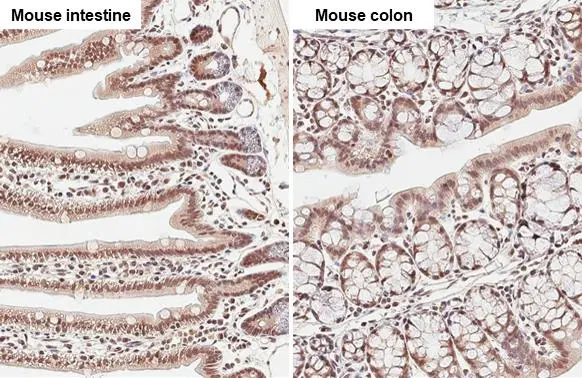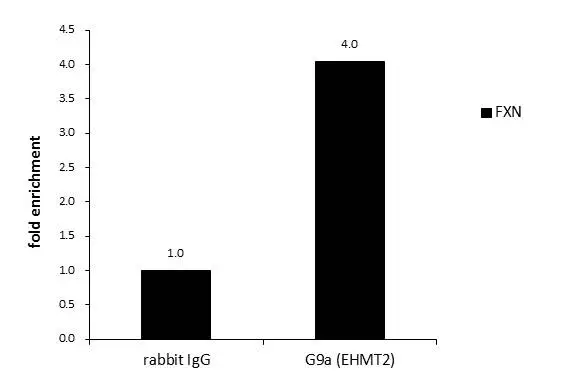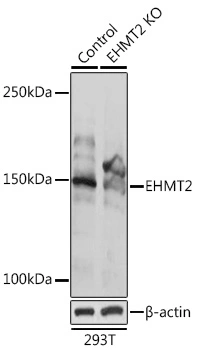
WB analysis of normal (control) and knockout (KO) 293T cell lysate using GTX55631 G9a antibody. Dilution : 1:1000 Loading : 25μg per lane
G9a antibody
GTX55631
ApplicationsWestern Blot
Product group Antibodies
ReactivityHuman
TargetEHMT2
Overview
- SupplierGeneTex
- Product NameG9a antibody
- Delivery Days Customer9
- Application Supplier NoteWB: 1:500 - 1:2000. *Optimal dilutions/concentrations should be determined by the researcher.Not tested in other applications.
- ApplicationsWestern Blot
- CertificationResearch Use Only
- ClonalityPolyclonal
- ConjugateUnconjugated
- Gene ID10919
- Target nameEHMT2
- Target descriptioneuchromatic histone lysine methyltransferase 2
- Target synonymsBAT8, C6orf30, G9A, GAT8, KMT1C, NG36, histone-lysine N-methyltransferase EHMT2, G9A histone methyltransferase, H3-K9-HMTase 3, HLA-B associated transcript 8, ankyrin repeat-containing protein, euchromatic histone-lysine N-methyltransferase 2, histone H3-K9 methyltransferase 3, histone-lysine N-methyltransferase, H3 lysine-9 specific 3, lysine N-methyltransferase 1C
- HostRabbit
- IsotypeIgG
- Protein IDQ96KQ7
- Protein NameHistone-lysine N-methyltransferase EHMT2
- Scientific DescriptionThis gene encodes a methyltransferase that methylates lysine residues of histone H3. Methylation of H3 at lysine 9 by this protein results in recruitment of additional epigenetic regulators and repression of transcription. This gene was initially thought to be two different genes, NG36 and G9a, adjacent to each other in the HLA locus. Alternative splicing results in multiple transcript variants. [provided by RefSeq, Jan 2016]
- ReactivityHuman
- Storage Instruction-20°C or -80°C,2°C to 8°C
- UNSPSC41116161

